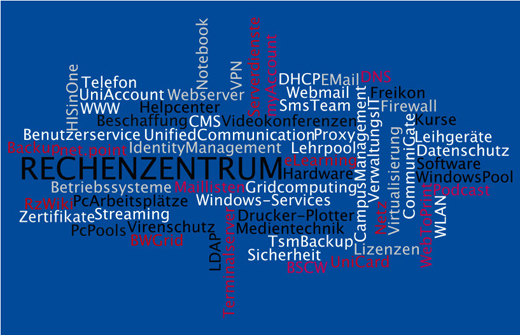Studying Computer Science (Informatics) in Germany
Informatics in Germany
Informatics programs are among the most popular in Germany, as they are all over the world. There is no doubt that there are many more options than I had on my way into this sector and profession. Although in our time the concept of “Computer Engineering” is understood as a concept that covers all “IT processes”, it should not be forgotten that what was called “IT system” at that time was just a server and a few clients used in bank headquarters or holding headquarters. (Don’t think I’m talking about a long time ago. I’m not that old. I’m not that old) IT specialties have diversified a lot in the world and IT systems are at the center of the main business processes of all businesses.
The demand for employment in the IT sector in Germany is increasing day by day.
In parallel with the development of the industry in Germany, the demand for IT specialists is increasing in almost every sector. Since companies cannot find sufficient labor force within the country, they are facilitated in importing labor force from outside. I think it would not be fortune-telling to predict that this development and growth in demand will increase in the near future.
In Germany, IT programs at universities have become one of the most popular programs as IT workers can find jobs with above average wages. This is the case not only for German students, but also for many foreign students who want to study IT in Germany and then continue their career here. Despite the intense interest of the industry and students, the limited number of faculty members in the “Informatics” field causes universities to ignore requests to increase the diversity and student quota of these programs.
If you are wondering how much IT professionals earn in Germany, you may also want to read my article on “Salaries of IT Professionals in Germany“.

Studying informatics in Germany
“Informatics” programs in Germany offer a wide range of options, both undergraduate and postgraduate. More than 140 universities offer undergraduate or postgraduate IT programs. Although the majority of undergraduate programs are taught in German, there are also programs where you can study in English. Although language proficiency may vary from school to school, you will usually be asked for proof of German at level C1.
Bachelor’s degree programs in Informatics in Germany try to focus you on certain subjects. In the first two years, you are expected to take courses in areas such as Mathematics, Algorithms, Databases, Systems analysis, Communication technology, Programming, Business administration, Operating systems and computer architecture, and then focus on one of the following areas: Business informatics, Applied informatics, Medical informatics, Bioinformatics, Media Informatics, Technical informatics, Navigation and Robotics. Some universities even offer these focuses as independent undergraduate programs.
In undergraduate program searches, you will come across the following programs extensively.
Informatics
Wirtschaftsinformatik (Business Informatics)
Medieninformatics (Media Informatics)
Angewandte Informatik (Applied Informatics)
Technische Informatik (Technical Informatics)
Bioinformatics
Medizininformatics (Medical Informatics)
Data Science and
Software Engineering
Some of the above programs are 3 and some are 4 year programs. Since undergraduate programs in many European countries are 3 years (180 ECTS), you will not have a problem in terms of equivalence, but since some of these programs are very special programs, their equivalence to “Computer Engineering” programs in your country is controversial and problems are possible. (e.g. Medizininformatik, Bioinformatik or Wirtschaftsinformatik)

However, if your career plan is to continue in Germany, you can choose any of the above programs blindly. In fact, if you do not have a goal of returning to your country and becoming a civil servant, there is no problem. The private sector will only be interested in the main subject of the program. Giving you the title of engineer is an extremely insignificant issue, especially for the IT sector. If you still want an “engineering” title, even though the programs appear as “Informatics”, the curriculum content can be interactive with other basic sciences. It should be researched well to avoid disappointment in equivalence. For the universities in Germany that employers like the most for Informatics, see my article “Top 10 best universities to study Informatics in Germany“.
In my research based on the experience of one of my readers, I learned that there are some problems with the “engineering” equivalence of some programs that I could not foresee. In summary, if your goal is to get an equivalence such as “Computer Engineering”, it is important to choose the school and program carefully. Otherwise, the equivalence you can get will mostly be in the form of “Computer Science”. IEEE (International Organization of Electronics Engineers) has created a website on engineering equivalencies (https://tryengineering.org) where you can view internationally accredited programs by selecting your desired engineering degree and country in the subject area.
On the same site, you can see different programs in Germany with the options of “Computer Science”, “Cybersecurity” and “Computer Engineering”. Unfortunately, YÖK is not very transparent about the criteria of the department it finds equivalent, but if you especially want “Computer Engineering” equivalence, I suggest you set your search criteria accordingly on the above site. On the other hand, I recommend you to review the accreditation documents of the school and program you choose from https://www.eqar.eu/. These documents will give you an idea about the curriculum of the program and the departments that are likely to be considered equivalent. Accreditation documents are given for a certain period of time and their duration is limited. For this reason, old documents of the program of your choice may mislead you. Examine current documents.

Let me say a few things to those who want to choose “Informatics” as a profession. First of all, it is a promising profession, but you need to love this job. You need to enjoy mathematics and problem solving, and you need to know no time limit. The ability to think abstractly allows you to progress easily in this branch, while the ability to work in groups (this is how many projects are often worked on) and good human relations are essential for progress.
What is required for admission to informatics programs in Germany?
First of all, the admission criteria of the university you will apply to is important, but when you research, you will see that many programs have no admission restrictions (Ohne NC). Although the lack of admission restrictions means that they will take every applicant, the situation is a little more complicated for foreign students. For admission, you definitely need proof of your qualification to study in Germany (see HZB) and a sufficient language level (C1). For programs with admission restrictions, i.e. NC limits, you will additionally need to calculate your VPD (see VPD). In addition to all these, in some cases I may recommend you to take the TestAs exam (see TestAs) to increase your chances of admission.
Depending on the university, there may be additional requirements. These can be internships, motivation letters and other selection processes. But it is best to check directly with the university for the exact requirement.
Is it difficult to study informatics in Germany?
Informatics programs are popular in Germany, but they are also notoriously difficult to complete successfully. This is partly due to the intensive content in “Mathematics” (do not think that it is one of the most difficult ones, you can read my article on this subject). Like many programs in Germany that do not have admission restrictions, “Informatics” programs start with a very large group of students at the beginning of the program, and the best students are screened with very difficult exams to select the best ones. It is worth noting that the successful completion rates of the programs are lower than our universities (I do not recommend these programs if you have problems with Mathematics in high school), but it should not be forgotten that this situation depends on the personal effort of the student.

While the programs are offered free of charge at public universities (you only pay a semester fee of roughly 250-350 Euros, which includes the semester ticket), you also have the chance to get these bachelor’s degrees at some private schools. Keep in mind that studying at private schools will require a tuition fee of roughly 15,000 Euros excluding living costs (especially if you want to study in English).
Master of Informatics in Germany
“Master’s” programs in the field of Informatics are also offered in many universities with very different focuses. However, they generally focus on the topics I have mentioned in the focus of undergraduate programs. The programs are usually 3 or 4 semester programs (90 – 120 ECTS). Since the admission criteria include more details and diversity than the undergraduate programs, it is necessary to examine each program’s own website. I should also mention that there are more programs in English.
Did I help you? If you have any questions, you will probably find the answer on these pages, but you can still contact me at recep[at]recepdayi.com.tr and on my social media accounts. I try to improve my articles according to your feedback, so please send me your comments. Thank you in advance.




